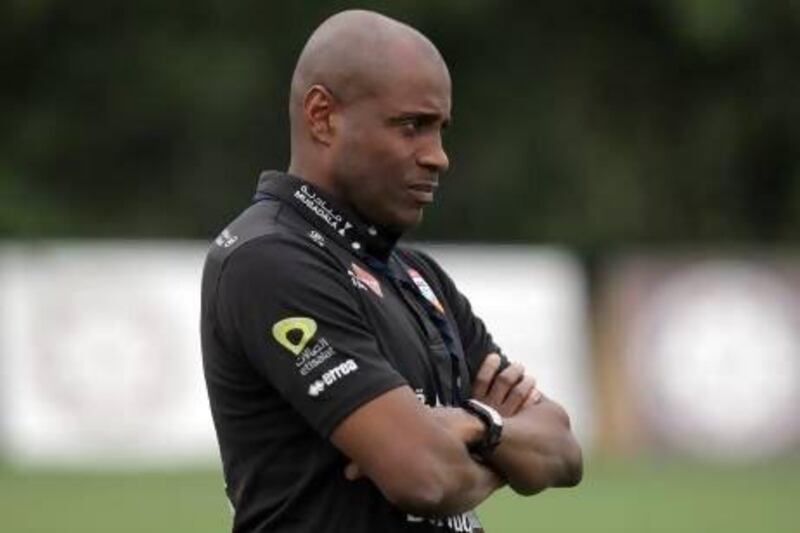The numbers are somewhat alarming for the Football Association.
The UAE can lay claim to three Emirati Pro League managers: Eid Al Baroot, Abdullah Misfir and Salem Al Orafi. The rest are foreign.
Throw in Mahdi Ali, the national-team coach, and that is four Emiratis in the 15 key positions.
The situation is embarrassing. People should be asking one question: where are all the Emirati managers?
If UAE football has aspirations to improve its status, then it should look to the top leagues in the continent.
Take South Korea, for example. Only two of the 14 managers of K-League teams are foreign and they have a thriving national team and have had regular success in the Asian Champions League.
Perhaps, the Football Association should try to develop young coaches and managers with the opening of a National Football Centre, like the one at St George's Park in England, a country with its own coaching issues; only four Premier League managers are English.
A similar national venue could be key in developing and educating home-grown talent, particularly encouraging former players to take up managing roles.
Mahdi Ali is the only former top-flight player who has been truly successful in management and his career began like that of other Emirati managers - as a stop-gap solution when clubs sacked a foreign manager and were waiting to appoint another.
The fact that Misfir, Al Orafi and Baroot will all probably start next season as managers of teams - Al Dhafra, Baniyas and Emirates, respectively - is progress in itself.
They would become the second, third and fourth Emiratis to open a Pro League season leading a club; the first was Abdulhameed Mishtiki, at Al Ain in 2010. He was dismissed after three months, with Al Ain ninth in the table.
The FA and the Pro League Committee should be investing in-training coaches. We can all acknowledge that such an initiative is not going to be an overnight process, but in the next five to 10 years, having a centre for aspiring coaches to train together would have a significant and positive influence on the UAE game.
It is a chance to impart culture, values and behaviours that will characterise a new generation of coaches and players. And thereby provide future Emirati managers.
Encouraging players who come to the end of their careers to go into coaching could be a very positive change for UAE football.
Some of the best Emirati players who hung up their boots never pursued coaching. Look at Al Ain's Hilal Saeed and Al Jazira's Subait Khater, to give two examples.
Both are veteran players who have been very successful in their playing careers and have a great knowledge of the game.
They should be encouraged to become coaches, but the reality is that their most-likely role will be behind the scenes, as a director or a team manager.
Is it because coaching is a low-paying job? Certainly, players know it is an unstable job.
Or could it be that Emirati players have more respect for foreign coaches with experience in Europe or Brazil, putting off Emirati hopefuls?
The situation was well explained by Adel Abdullah, the Al Shabab captain, in 2011.
Asked about plans after his playing career is over, he said: "Coaching is a big headache, so perhaps I will get into administration or become the manager of the team.
"That's easier. Just sit, drink coffee, make a call: 'Where are you? Come now, we are starting training'. You just manage things. I feel this is better, an easy job."
And even the best Emirati managers face a battle. Opportunities do not always knock. Despite all the fine work by Mahdi Ali, Emirati managers still suffer from an image problem. Pro League clubs often overlook home-grown candidates, preferring big names from Europe.
The most surprising thing about this is not the low number of Emirati managers, but the equally low number of people who seem in any way concerned by this state of affairs.
Just as worrying is the lack of young Emirati managers practicing their trade in the lower divisions.
This seems to be a problem that is set to get worse before it gets better.
That is, if it ever gets better. It might well be that taking the reins at a Pro League club today is such a risky proposition that few Emiratis will ever want to coach.
Which is why the scandal that no Emirati manager has ever won the title in the era of the Pro League looks set to continue for years to come.
Follow us
[ @SprtNationalUAE ]





